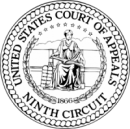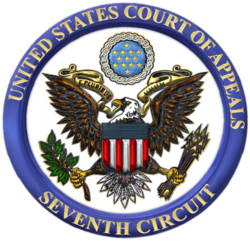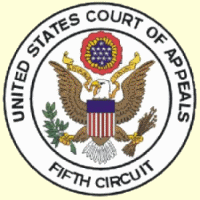Interpreting the Supreme Court of the United States’s ruling in Campbell-Ewald Co. v. Gomez, the U.S. District Court for the District of Minnesota recently held that a defendant cannot moot a putative class action against it, even by tendering the full amount claimed to the named plaintiff and before a motion for class certification is filed. A copy of the opinion in Ung v. Universal Acceptance Corporation is available at: Link to Opinion. Beginning in June 2014, an auto finance company allegedly repeatedly called the plaintiff’s cell phone in an attempt to reach an individual who allegedly listed the plaintiff as a…
Posts published in “Class Actions”
Class Actions
The U.S. Court of Appeals for the Third Circuit recently upheld a trial court’s ruling that an unaccepted offer of judgment under Fed. R. Civ. Pro. Rule 68, made before a plaintiff files a motion for class certification, does not make the case moot. The copy of the opinion in Weitzner v. Sanofi Pasteur, Inc. is available at: Link to Opinion. The named plaintiff filed a putative class action against the defendants for alleged violation of the federal Telephone Consumer Protection Act (TCPA). The plaintiff alleged that the defendants transmitted more than 10,000 facsimiles to the plaintiff and other members of…
The Consumer Financial Protection Bureau has released a proposal to prohibit creditors from using arbitration clauses to block class action litigation. The Bureau’s proposed ban is not surprising. However, it will only impact arbitration agreements concerning covered consumer financial products or services entered into after its effective date. Arbitration Clauses and Class Action Waivers Arbitration is an effective means for consumers to vindicate their claims in an informal setting. Through the informal setting of arbitration, consumers are not restricted by court rules of evidence and procedure that could otherwise limit or even prevent the assertion of particular claims or the use…
The U.S. Court of Appeals for the Sixth Circuit recently reversed a district court’s dismissal of a putative class action lawsuit, holding that while the district court was correct that the first-to-file rule applied because of a previous class action involving substantially the same parties and claims, it was an abuse of discretion to dismiss the present case given the jurisdictional and procedural hurdles the plaintiffs would face if forced to become part of the earlier class action filed in another federal judicial district. A copy of the opinion in Baatz v. Columbia Gas Transmission, LLC is available at: Link to Opinion.…
The U.S. Court of Appeals for the Ninth Circuit recently affirmed a district court’s order denying class certification in a lawsuit alleging violation of the federal Telephone Consumer Protection Act (TCPA), holding that the “district court did not abuse its discretion by finding the requirements of Rule 23(b)(3) unsatisfied,” and that the “district court appropriately determined that it would be extremely difficult to ascertain the identities of the individuals who had not consented to receive the messages.” A copy of the Ninth Circuit’s opinion in Gannon v. Network Telephone Services, Inc. is available at: Link to Opinion. A copy of the…
The Supreme Court of the United States recently held that a class action defendant cannot “pick off” the named plaintiff and thereby render the case moot by simply offering full relief by way of settlement offer or offer of judgment under Federal Rule of Civil Procedure 68. However, as the majority acknowledges, the Court also left open the question of what happens when a defendant actually tenders full relief to the named plaintiff, thus potentially leaving class action defendants an alternative weapon to cost-effectively defeat class claims. A copy of the opinion in Campbell-Ewald Co. v. Gomez is available at: Link…
A credit reporting agency has settled a long-pending class action lawsuit in the U.S. District Court for the Eastern District of Virginia, agreeing to pay more than $3 million and remove from its consumer credit reports judgments entered in Virginia General District Court. The Fair Credit Reporting Act (FCRA) class action, Soutter v. Equifax Information Services LLC, was given the green light in April, with U.S. District Judge Robert E. Payne agreeing the standards for class certification had been met. In the class claim, plaintiff Donna K. Soutter contended Equifax willfully violated the FCRA when it failed to take reasonable…
The Maryland Court of Appeals recently affirmed a trial court’s grant of summary judgment in a putative class action “application fraud” case in favor of a mortgage company, bank, loan officers, realtors and a realty group and against the putative class of borrowers. In so ruling, the Court held: (1) the borrowers’ allegations were time barred; (2) the borrowers were put on inquiry notice and presumed to know the contents of the fraudulent loan applications they signed; (3) the lenders and realtors were not shown to have prevented the borrowers from reading the application documents; (4) the lenders had no…
Providing a putative class representative with complete relief did not moot his individual and class demand for declaratory and injunctive relief under the Florida Deceptive and Unfair Trade Practices Act (FDUTPA) according to a recent decision from a divided panel of Florida’s First District Court of Appeal. In Ahearn v. Mayo Clinic, 2015 Fla. App. LEXIS 16716 (Fla. Dist. Ct. App. 1st Dist. Nov. 6, 2015), Shawn Ahearn received emergency medical treatment from the Mayo Clinic in September 2013. Lacking health insurance for the medical care, he received a bill for $5,953.26. After paying $330 of the bill, Ahearn found fault with…
The U.S. Court of Appeals for the Ninth Circuit recently reversed the dismissal of a class action that was removed to federal court under the federal Class Action Fairness Act (CAFA). In so ruling, the Court held that the case fit the narrow “local controversy exception” to CAFA’s grant of federal court jurisdiction. A copy of the opinion is available at: Link to Opinion. The trial court found it had jurisdiction over a class removed from state court under CAFA. Then, the trial court dismissed the suit for failure to state a claim. However, the Appellate Court focused its analysis…
The U.S. Court of Appeals for the Seventh Circuit recently refused to impose a heightened “ascertainability” requirement at class certification. More specifically, the Court held that plaintiffs do not have to prove at the class certification stage that there is a “reliable and administratively feasible” way to identify class members under Federal Rule of Civil Procedure 23(b)(3), and affirmed the district court’s certification of a class of consumers who purchased a dietary supplement falsely advertised as scientifically tested and proven to relieve joint pain. A copy of the opinion is available at: Link to Opinion. The putative class plaintiff sued…
The U.S. Court of Appeals for the Fifth Circuit recently held that an unaccepted offer of judgment does not moot a lead plaintiff’s claim in a putative class action. In so ruling, the Fifth Circuit reversed the district court’s ruling that, because a motion for class certification was not filed before the offer, the putative class action was also mooted. A copy of the opinion is available at: Link to Opinion. The plaintiff withdrew money from his checking account at an automated teller machine (ATM) and subsequently sued the ATM owner, seeking statutory damages under the Electronic Funds Transfer Act…












